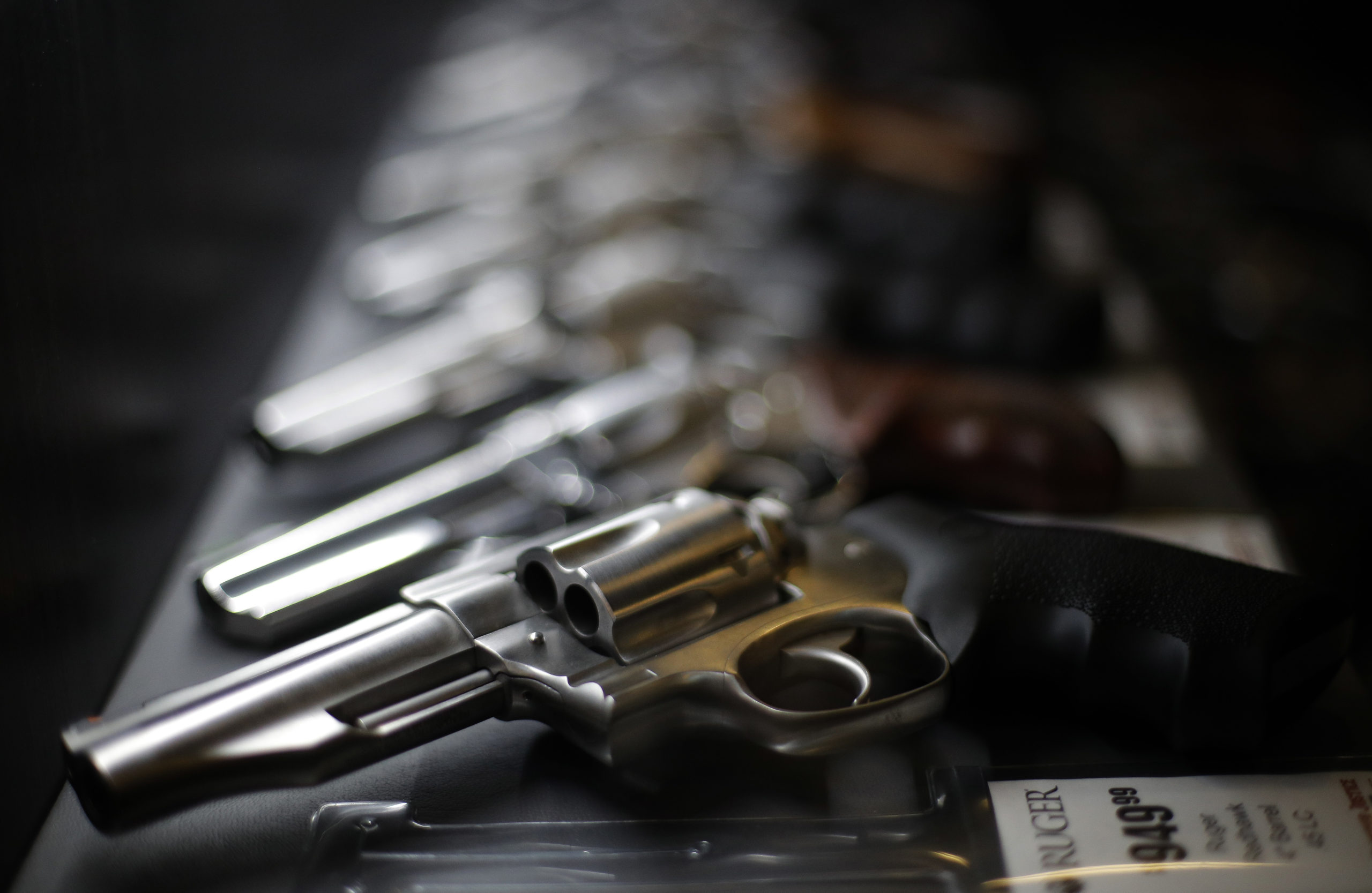What To Know Today
NEW from THE TRACE: After two decades helping victims through tragedy, a grocery store shooting brought her work home. Stephanie Rudy has volunteered as a victim advocate with the Boulder Police Department for more than two decades. Several days each month she’s on call responding to suicides, fires, drug overdoses, and shootings, helping survivors get through the first few days. But on March 22, tragedy hit home when a shooter opened fire in her neighborhood King Soopers grocery store, killing 10. The hardest day for Rudy was when police released the victims’ bodies and property to their next of kin. “I am used to the pain of a family, but this is magnified so many times,” she said. “And this felt different. These were my friends.” You can read the full profile here.
Firearm possession makes up nearly 3 in 4 arrests, convictions for gun offenses in Illinois. That’s according to a new study from Loyola University Chicago’s Center for Criminal Justice Research, Policy and Practice. Illinois laws limit legal firearm possession based on prior felony convictions, age, and having a concealed carry license. The majority of felony firearm possession convictions occurred in Cook County, where Chicago is located; disproportionately affected Black men; and were concentrated in a handful of Chicago neighborhoods. The study also found that about two-thirds of those convicted of felony firearm possession offenses had no violent crime on their record within three years of being released from prison or probation.
COVID-19’s new victim: The reliability of witness interview transcripts from New York AG Letitia James’s investigation of the NRA. That’s the suggestion the National Rifle Association makes in a recent court filing in its legal war with James. Throughout the 182-page filing — an amended response to the attorney general’s allegations — the NRA says that James took investigative testimony “subject to substantial COVID-19 precautions which could reasonably be expected to impede accurate transcription, including masking and socially-distant seating arrangements.” The Attorney General’s Office rebuffed NRA attempts to “identify and rectify errata” in the transcripts, the filing repeatedly states. The NRA raises the prospect of unreliable transcripts most often in regard to the testimony of CEO Wayne LaPierre on matters that range from his wife’s role as head of the group’s Women’s Leadership Forum, to private jet flights that LaPierre and his family took on the NRA’s dime, to his role in negotiating contracts with an NRA vendor who regularly hosted LaPierre on his yacht in the Bahamas. Barring a settlement, the case is expected to go to trial in 2022. — Will Van Sant, staff writer
Health care CEOs, 1,300+ caregivers, rally support for Biden community anti-violence plan. In a letter, eight leaders of major health systems and medical professionals across the country urged congressional leaders to support the administration’s call in its proposed American Jobs Plan for $5 billion to fund community violence intervention. The letter singled out hospital-based violence intervention, in which community outreach workers connect with violent crime victims while they’re still in the hospital and mentor them post-discharge. The concept, first pioneered by a gunshot survivor 30 years ago, hinges on the idea that patients are particularly receptive to guidance following a near-death experience, and aims to prevent retaliatory shootings and repeat firearm victimization. “We feel a pressing responsibility to protect the health and safety of the patients and communities we serve — and we urge you to act,” the letter reads. — Tom Kutsch, newsletter editor
The Senate unanimously votes to fix the national crime victim assistance program. Victims of Crime Act grants are the largest source of federal funding for victims of crime and provide an array of services for gun violence survivors. New legislation, heading to President Joe Biden’s desk, increases the cap on state awards to crime victims and ensures the Crime Victims Fund that funds the grants doesn’t dry up, as it has in recent years. Related: The Trace’s Lakeidra Chavis recently investigated Illinois’ victim compensation program. She found that a minority of applicants receive funds, and many victims don’t know about the program.
Data Point
21 — the number of states that now have permitless carry laws. Five states — Iowa, Montana, Tennessee, Texas, and Utah — enacted this legislation this year. [Bloomberg]

